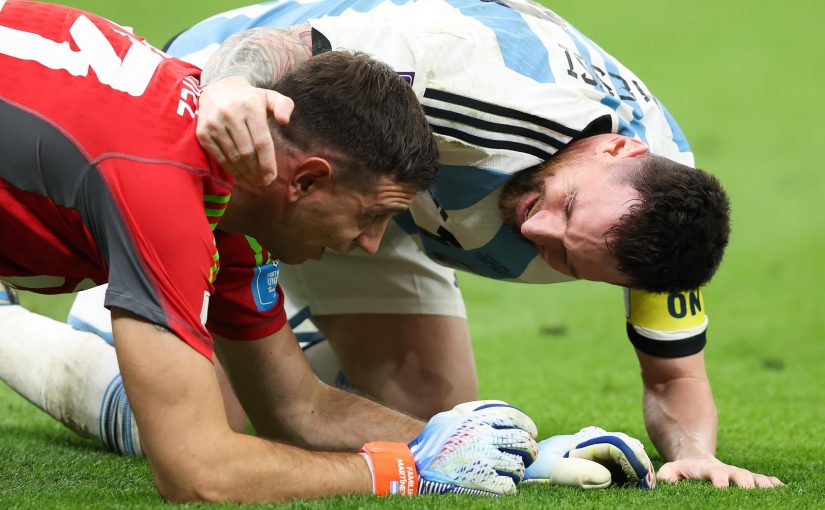TRIUMPH: Argentina won the World Cup with Messi delivering during the penalty shootouts. Messi is considered best penalty expert.
By Sounak Mukhopadhyay
Noted psychologist Geir Jordet talks about the mind games played during penalty shoot-ups in football and specifically the finals between Argentina and France in the just concluded World Cup. The penalty is the most tense moment in football and hockey, as it is a contest between the striker and the goalkeeper with no one in between.
Psychologist Geir Jordet has spent the last five years of his life viewing video of every penalty shootout from every significant international men’s competition during the last 50 years. In order to understand how the teachings from a soccer pitch in Qatar applied to every field of employment, his objective was to study as much as he could about the complexity of performing under pressure. Here comes his analysis of Argentine goalkeeper Emiliano Martínez’s strategy during the critical penalty shoot-out in the FIFA World Cup 2022 final.
Emi Martinez established the tone and grabbed control of the penalty area right away. Hugo Lloris, the captain of France, successfully executed the coin toss while Martinez hurriedly approached the penalty area and awaited Lloris’ arrival as if he were receiving a guest at his own house.
Martinez started a handshake as Lloris arrived. With Mbappé, he followed suit. Martinez’s initial warmth and beauty can cause individuals to let their guard down, making them more susceptible to his later attacks. This ambiguity is a part of his plan to cause damage to the opposition.
Martinez’s interruptions are modest and subdued towards the beginning of the shootout. This is likely being done to get to know the referee and determine where the line is set. Before Mbappe came in, he requested that the referee examine the ball placement. The official graciously accepted and gave a “thumbs up” in response.
Martinez pushed slightly harder with Kingsley Coman, prompting the referee to courteously step in. Once more, he persuaded the referee to look at the ball’s placement and received an obedient reaction. Martinez was now aware that he controlled the penalty area.
Goalkeepers hardly ever prefer a major celebration after saving a penalty. Martinez represents a rarity. According to Jordet, loud and emotional celebrations convey assurance, dominance and supremacy, which is advantageous to teammates and detrimental to rivals. The first save Martinez made was fully utilised.
Martinez was certain of his abilities and limitations when Aurelien Tchouameni was up. He had had it with being understated. He simply walked away with the ball at first, as though it was his own. He took his time with it and waited for the referee and Tchouameni, prompting the Argentinean supporters to roar.
Then, rather than passing the ball to Tchouameni, Martinez threw it away, making the other team go get it. There was no denying the disdain. The official referee imposed no sanctions. Everyone knew who the boss was. Martinez smiled smugly at Tchouameni when he was ready to shoot. Tchouameni missed it.
After that, Paredes went in for Argentina. Martinez was aware that Lloris might stop being polite and start using Martinez’s tricks on the Argentine players. So, without giving Lloris a time to imitate, he immediately snatched the ball and handed it to Paredes himself.
Martinez first appeared to speak and gesture with a staff member on the sidelines about the fourth French penalty taker, Randal Kolo Muani. Then he repeated, “I’ve watched you!” multiple times. The expected yellow card came too late; Martinez already had the upper hand.
Jordet called Emi Martinez’ mind games “big, unpredictable and calculated” as he compared him with the Italian diplomat Nicholas Machiave, who was known for his mind games. As per Jordet, Martinez has inspired others to imitate him and develop strategies to counter him. With this performance on the largest stage in the world, Jordet said he was curious to see how it would evolve going forward.
Courtesy: The Livemint
